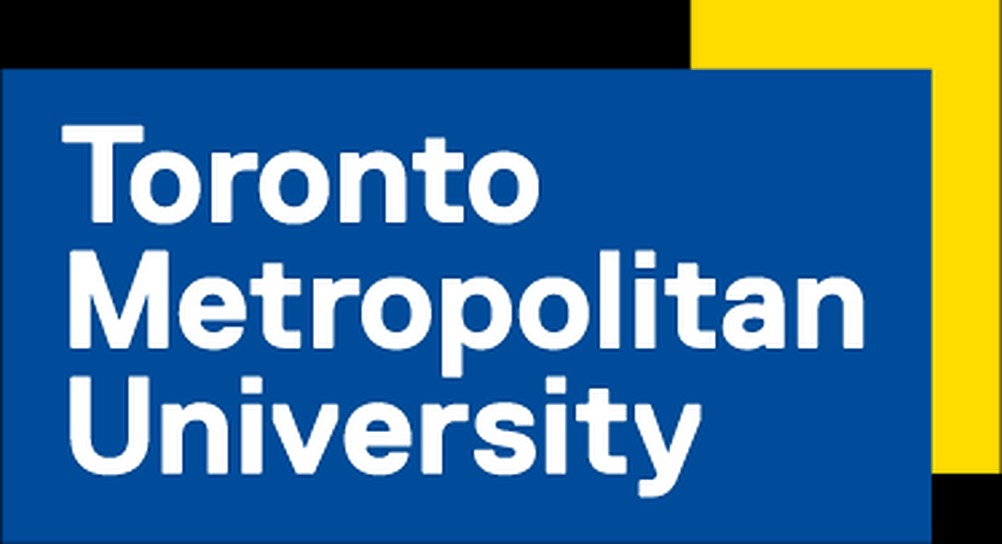Toronto Metropolitan University: TMU professor raises nearly $270,000 to reprint music theory textbook
When professor Jason Nolan was building Toronto Metropolitan University’s (TMU) Responsive Ecologies Lab (RE/Lab) in 2016, it reignited his curiosity about electronic music. The lab, which researches interconnected technologies in everyday life, includes an experimental music corner and Nolan wanted to learn more about electronics. Problem was, the textbook he was looking to learn from, Electronic Music: Systems, Techniques, and Controls by Allen Strange, was selling for hundreds of dollars online.
Nolan says the book is a practical tool for learning the synthesizer. “It teaches composition and electronics, it helps people build instruments and has process-based thinking for people who are learning,” he said. “It really is the perfect book and it has stood the test of time.”
Allen Strange was a composer, educator and electronics aficionado. The textbook he authored was originally published in 1972 and has been out of print since 1983. Nolan says that, despite advancements in music theory since the 1980s, people are still using this book to build electronic musical instruments – if they can get their hands on one of the very limited copies.
When Nolan inquired about a reprint from the publisher who was thought to own the rights, it was too expensive.
“I wanted the book. I was curious and I thought to myself, maybe we [TMU] could reprint it,” says Nolan, who teaches Early Childhood Studies courses in creative arts, children and play, and social innovation, and was recently appointed as the John C. Eaton Chair in Social Innovation and Entrepreneurship at the Faculty of Community Services (FCS).
What followed sent Nolan on a four-year journey that included learning about copyright licensing, connecting with the author’s family and creating a wildly successful KickStarter campaign.
Leveraging TMU’s publishing program
Nolan’s first stop was the TMU Libraries for their extensive knowledge on copyright licensing. He worked with librarians Ann Ludbrook and Sally Wilson to determine who actually owned the rights to the textbook. They discovered that the original publisher was uncertain about the copyright status of the book, opening up the opportunity for a reprint to actually happen.
Ludbrook worked with Patricia Strange, Allen Strange’s widow, to get a rights reversion to the textbook, under U.S. copyright law. Nolan, along with the Librariesand TMU’s general counsel then prepared an agreement with the Strange family to license the reprint to the university.
“It took a long time but it was worth it in the end,” said Ludbrook. “Allen’s widow will now receive royalties from the reprint project.”
The TMU Libraries runs a book publishing program, making Nolan’s project a natural fit for the university. They were able to give students valuable publishing experience, including having students enhance and replace images in the original edition of the textbook and help prepare it for its republication.
Wilson says the Libraries team was happy to help see the reprint through.
“Jason’s enthusiasm for the project was always there, and he was sure from some early market research that there would be a lot of interest in this seminal book,” she said.
Heidi Chan (RE/Lab researcher and instructor in The Creative School) was tasked with finding replacement and negotiating copyright for all the photos in the book, as well as gathering testimonials from academics, musicians and synthesizer designers who were influenced by the book. The Strange family has supported TMU’s reprint project throughout the process, with Allen Strange’s daughter even redesigning the cover page.
Launching a KickStarter campaign
To fund the reprint, Nolan turned to KickStarter and launched a campaign this past summer for people around the world to donate money in order to receive a copy of the textbook. He initially set the funding goal at $50,000 and to his surprise, the goal was reached in one day. In the end, the campaign raised $266,232 from 3,476 backers around the world. The goal was exceeded by 532 per cent and nearly 5,200 copies of the book will be distributed. Nolan says the reprint is considered a bestseller by Canadian publishing standards.
The funds raised in the campaign go toward printing and shipping the book to those who have pledged in support of the project. It also covers royalties to the Strange family. Any additional money will be donated to community organizations including the Toronto Community Schools of Music and the Willie Mays Rock Camp in the United States.
Support from across the university
Nolan credits the success of the KickStarter campaign and reprint to the support he received from the entire university. “No one thought it was a bad idea,” he said. “I received amazing support from the entire institution. It’s a typical TMU response – this is interesting, let’s see what happens – not a lot of universities are like that. Having help from the Libraries and the administration gave the project a lot of credibility.”
Nolan continues to work closely with the Libraries now that the book is being printed. He hopes to have the textbook distributed internationally by the end of the year.
“The electronic music community is all about support and trust and the sharing of ideas and techniques,” he said. “I wanted to give something back to the community with this book and now we have thousands of people from around the world who have seen what TMU can do.”

